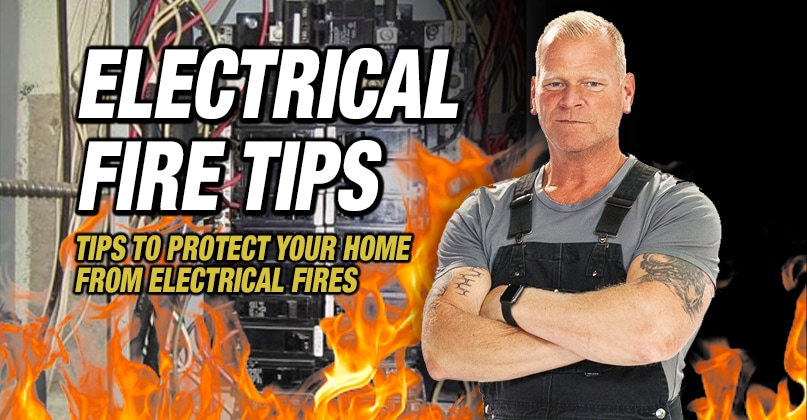I love exploring new technology—especially when it genuinely improves how we work in construction—and I recently came across one that truly impressed me, iGUIDE by Planitar Inc. In my...
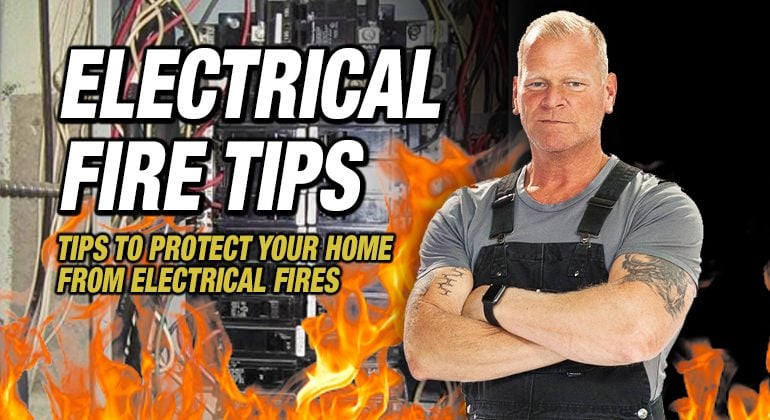
Electrical Fire Safety Tips – How To Prevent Electrical Fires At Home
By Mike Holmes
Mike’s Advice / Home Safety & Maintenance
Wednesday, January 27th, 2021 @ 8:33am
The Dangers Of Electrical Fires
20 percent of all fires in Canada are due to electrical fires. In the US there are more than 24,000 electrical fires annually.
That’s a lot – too much. They’re preventable if the right pros are brought in at the right time.
Faulty wiring is the number one cause of electrical fires. Sometimes fires happen because of poor workmanship. Other times it’s just wear and tear. But you need to know the warning signs.
Watch out for these Electrical Fire Warning Signs
- Flickering/dimming lights and light bulbs
- Breakers that always trip
- Fuses that always blow
- Faulty extension cords
- Old space heaters
- Appliances that have a burning smell when they’re on, including the lights in a room
- Discolored wall outlets
- Electrical outlets that spark
- Faulty electrical appliances
- Outlets and light switches that are hot when you touch them
- A wall is abnormally hot
- Outdated wiring
- Loose plug retention in outlets – Do your cords stay plugged in?
They’re all signs that tell you something may be wrong with the electrical system in your home.
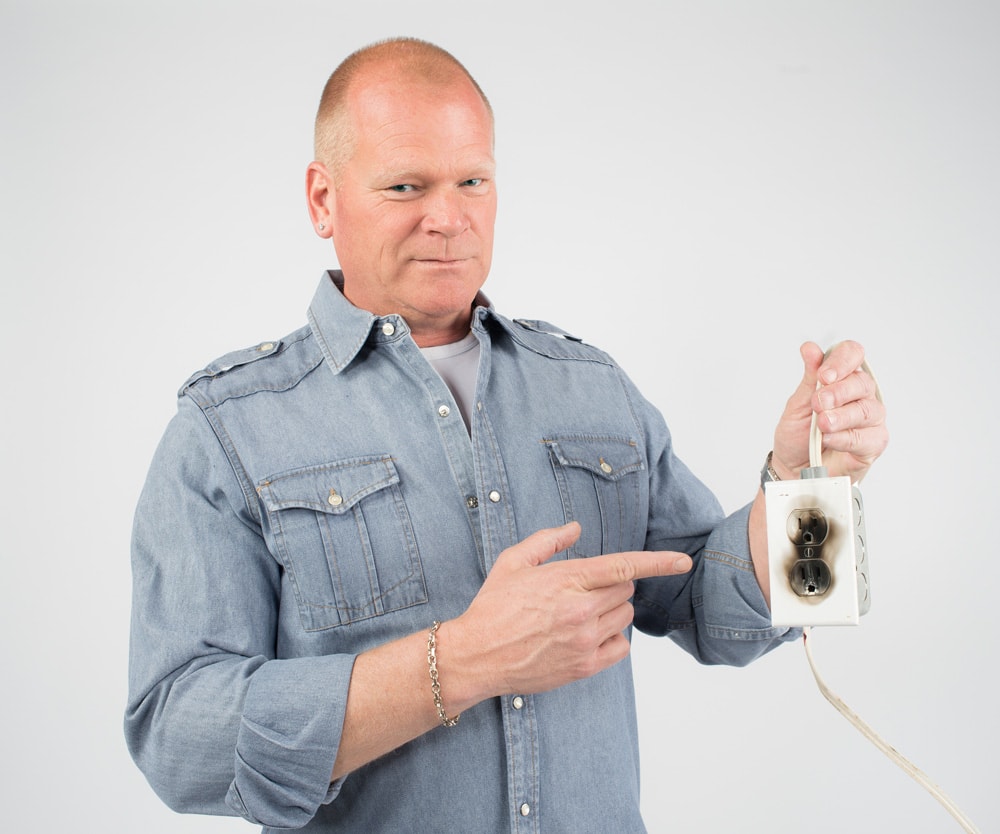
The longer you wait to get it fixed, the greater the risk for your home to start an electrical fire.
Electrical currents generate heat and over time that heat can cause the conductor (wires) to expand and contract. This expanding and contracting can loosen the connection and once it’s loose, the electricity can arc.
When arcing happens the potential for an electrical fire is huge.
5 TIPS TO PROTECT AGAINST ELECTRICAL FIRES
Tip 1 – Use Arc Fault Circuit Interrupters
The first way we can prevent electrical fires caused by an electrical arc is the use of Arc Fault Circuit Interrupters (AFCI). An AFCI is a circuit breaker or receptacle that detects when electricity flows through the air due to damaged wiring.
This phenomenon is known as electrical arcing and is a common source of electrical fires in the home. AFCI protection disconnects the power as soon as it detects a potentially dangerous arcing condition.
Before AFCIs were introduced the bedroom was where most electrical fires started. But in 2002 it became code to protect all circuits that feed outlets in bedrooms with AFCIs.
Due to widespread adoption of AFCIs on bedroom circuits the number of fires starting in bedrooms substantially decreased. Now, the kitchen and bathroom are where most electrical fires start.
It’s code to have AFCIs in the bedroom. But in some states, like Massachusetts, it’s code to have AFCIs protecting all the circuits in a home. I’d like to see this level of protection expanded in all our electrical codes. Why not protect the entire house if we can? It’s a no brainer.
“The kitchen and bathroom are where most electrical fires start.”
Tip 2 – Inspect wiring
Older homes tend to have mixed wiring. Whenever anyone purchases a home that’s 15-years old or older they need to get a licensed electrician to check out the house—especially if the older home has a finished basement.
Tip 3 – Breakers trip for a reason
Overloaded circuits. The problem is when an overloaded circuit starts to trip. Homeowners go in and replace a 15-amp breaker with something higher, like a 20-amp or 30-amp breaker. But this doesn’t fix the problem.
The circuit breaker’s primary job is to protect the wire, so oversizing the breaker will cause the wire to overheat. Before you know it, the wire degrades, and you’ve got a fire.
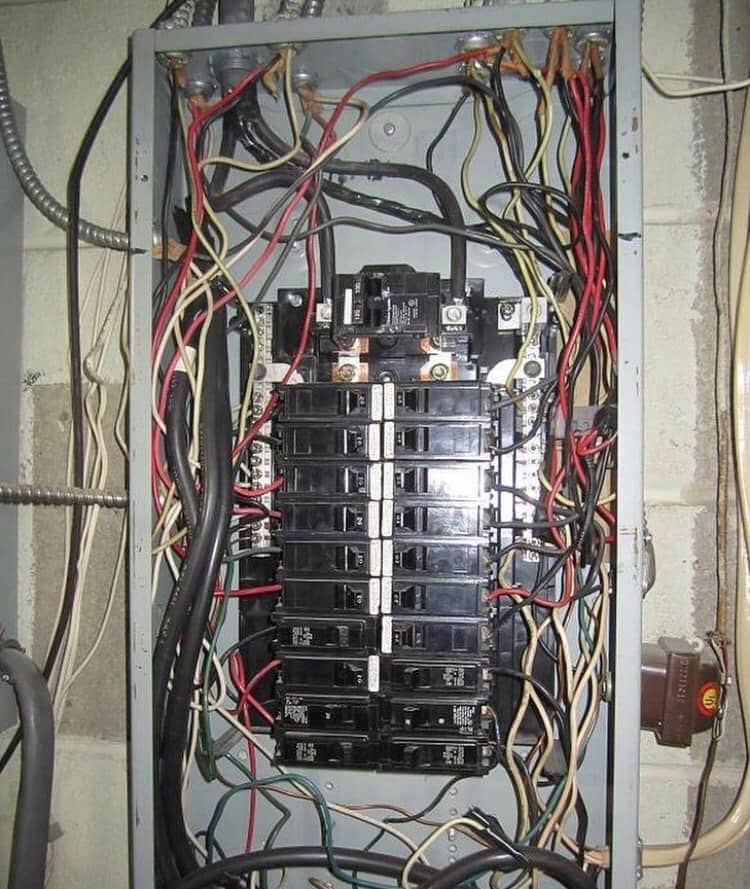
Overloaded circuits are also a risk like here with this spaghetti wiring. But the risk is less when a 15-amp breaker or fuse protects the circuit.
READ MORE
Electrical Fails, Mike Holmes’ Top 5 Biggest Electrical Fails
Tip 4 – Water/Electricity
Electrical cords close to a water source are dangerous. Water and electricity don’t mix. We all know that.
Tip 5 – Hire a Pro
Stay away from DIY electrical work. Too many homeowners think they can do their own electrical work. And too many of them do.
How do you know if everything is up to code? If there’s knob and tube wiring? Or aluminum wiring mixed with copper? Or if the last owners hired someone who knew what they were doing? Always hire a professional.
Visit Find A Local Licensed Electrician | Myhome.eaton.com for a qualified contractor in your area.
DID YOU KNOW?
An Eaton Licensed Electrician always ensures my home’s electrical is safe and working properly. Looking for a certified electrical contractor to help you with your electrical needs? Go to myhome.eaton.com
Get Yourself A Surge Protector
Having a whole house surge protector will help reduce electrical fluctuations that happen on your circuits and prevent these electrical surges from entering your house to begin with.
It is so important to do so that all new homes built in the US are now to have surge protection per the latest revision of the National Electrical Code.
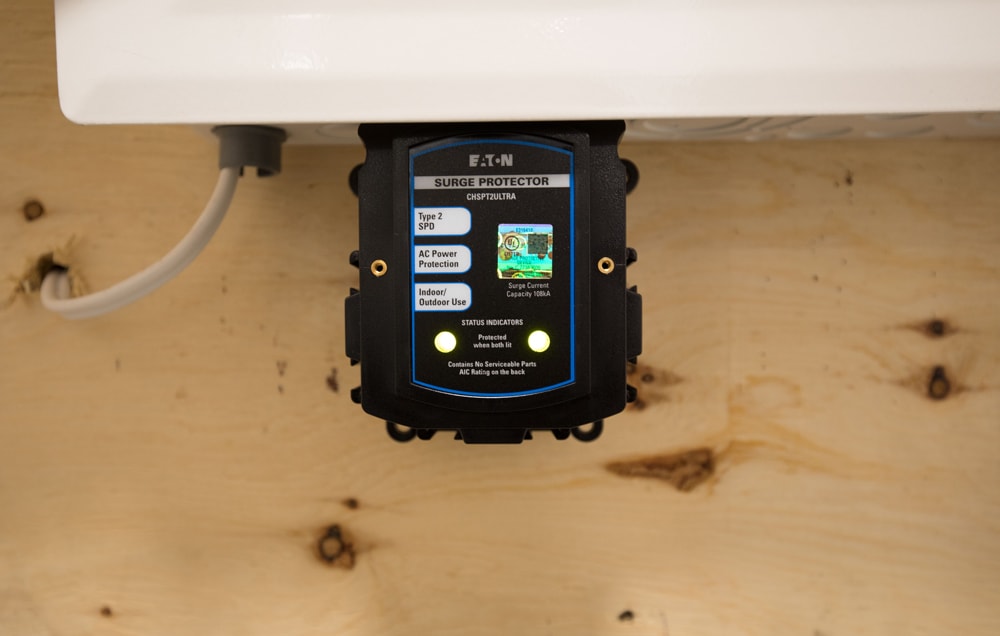
Get yourself a surge protector because it’s always better to prevent the surge damage from occurring than it is to replace everything.
RELATED
REMEMBER
It’s always good to have a fire extinguisher in your home. Electrical fires are known as Class C fires, and so requires a Class C fire extinguisher.
Don’t wait for disaster to strike. It’s better to be safe than sorry.
READ NEXT
